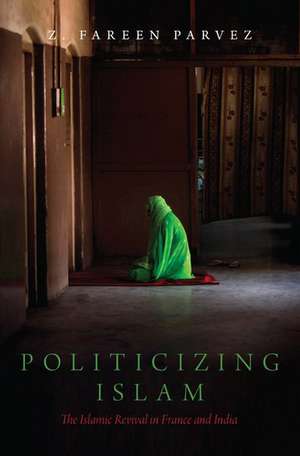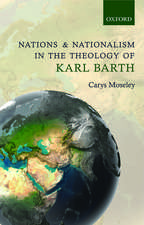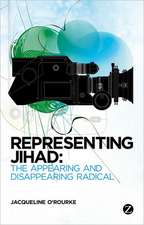Politicizing Islam: The Islamic Revival in France and India: Religion and Global Politics
Autor Z. Fareen Parvezen Limba Engleză Hardback – 2 mar 2017
Din seria Religion and Global Politics
- 8%
 Preț: 190.80 lei
Preț: 190.80 lei - 27%
 Preț: 340.62 lei
Preț: 340.62 lei - 11%
 Preț: 169.48 lei
Preț: 169.48 lei - 22%
 Preț: 714.20 lei
Preț: 714.20 lei - 30%
 Preț: 758.57 lei
Preț: 758.57 lei - 18%
 Preț: 307.78 lei
Preț: 307.78 lei - 8%
 Preț: 297.06 lei
Preț: 297.06 lei - 27%
 Preț: 407.85 lei
Preț: 407.85 lei - 30%
 Preț: 499.94 lei
Preț: 499.94 lei -
 Preț: 309.38 lei
Preț: 309.38 lei -
 Preț: 303.92 lei
Preț: 303.92 lei - 30%
 Preț: 524.48 lei
Preț: 524.48 lei - 28%
 Preț: 419.01 lei
Preț: 419.01 lei - 22%
 Preț: 462.87 lei
Preț: 462.87 lei - 10%
 Preț: 243.45 lei
Preț: 243.45 lei - 8%
 Preț: 222.57 lei
Preț: 222.57 lei - 19%
 Preț: 233.72 lei
Preț: 233.72 lei - 18%
 Preț: 215.32 lei
Preț: 215.32 lei - 12%
 Preț: 322.91 lei
Preț: 322.91 lei - 14%
 Preț: 367.77 lei
Preț: 367.77 lei - 30%
 Preț: 553.30 lei
Preț: 553.30 lei - 13%
 Preț: 150.42 lei
Preț: 150.42 lei - 30%
 Preț: 660.07 lei
Preț: 660.07 lei - 25%
 Preț: 588.37 lei
Preț: 588.37 lei - 9%
 Preț: 478.50 lei
Preț: 478.50 lei - 13%
 Preț: 558.34 lei
Preț: 558.34 lei
Preț: 557.52 lei
Preț vechi: 799.23 lei
-30% Nou
Puncte Express: 836
Preț estimativ în valută:
106.69€ • 110.71$ • 89.18£
106.69€ • 110.71$ • 89.18£
Carte tipărită la comandă
Livrare economică 05-11 martie
Preluare comenzi: 021 569.72.76
Specificații
ISBN-13: 9780190225247
ISBN-10: 0190225246
Pagini: 286
Dimensiuni: 236 x 157 x 28 mm
Greutate: 0.52 kg
Editura: Oxford University Press
Colecția OUP USA
Seria Religion and Global Politics
Locul publicării:New York, United States
ISBN-10: 0190225246
Pagini: 286
Dimensiuni: 236 x 157 x 28 mm
Greutate: 0.52 kg
Editura: Oxford University Press
Colecția OUP USA
Seria Religion and Global Politics
Locul publicării:New York, United States
Recenzii
Fareen Parvez's book raises important questions on how class dynamics, state regulation, and religious orientation co-constitute and interact with each other. Her work contributes importantly to de-essentialize reigning views on Muslim politics by showing their inner complexity. It also raises important questions on the dialectical relationship between materiality and religiosity or on the all too prevailing assumption that European countries are simply a space of religious freedom.
In Politicizing Islam, Parvez has produced a superb, multidimensional account of the ways that state models of secularism, together with community specific relations of class, inform the aims, tactics, and orientations to state power of Islamic revival movements. ... Sociologists of religion, gender, race and nation, as well as those interested in further unpacking the relationship of social and political movements to the state, will find much to engage with in this work.
In Politicizing Islam, Parvez has produced a superb, multidimensional account of the ways that state models of secularism, together with community specific relations of class, inform the aims, tactics, and orientations to state power of Islamic revival movements. ... Sociologists of religion, gender, race and nation, as well as those interested in further unpacking the relationship of social and political movements to the state, will find much to engage with in this work.
Notă biografică
Z. Fareen Parvez is Assistant Professor of Sociology at the University of Massachusetts at Amherst.













